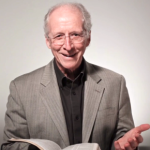Kevin DeYoung the Belgic Confession (1561), begins with the declaration “that there is a single and simple spiritual being, whom we call God” (Article 1). This may seem a strange way to open a confession. There is only one single being called God; that makes sense. But God is simple—what’s that all about?
The simplicity of God is an important truth few Christians think about any more. By “simple” we do not mean God is slow or dim-witted. Nor do we mean that God is easy to understand. Simple, as a divine attribute, is the opposite of compound. The simplicity of God means God is not made up of his attributes. He does not consist of goodness, mercy, justice, and power. He is goodness, mercy, justice, and power. Every attribute of God is identical with his essence.
Consequently, we ought not suggest, for example, that the love of God is the true nature of God while omnipotence (or holiness of sovereignty or whatever) is only an attribute of God. This is a common error, and one which the doctrine of simplicity would have us avoid. We often hear people say, “God may have justice or wrath, but he is love.” The implication is that love is more central to the nature of God, more true to his real identity than other less essential attributes. But this is to imagine God as a composite being instead of a simple.
It is perfectly appropriate to highlight the love of God when Scripture makes it such a central theme. But the declaration “God is love” (1 John 4:8) does not carry more metaphysical weight than “God is light” (1 John 1:5 ), “God is spirit” (John 4:24 ), “God is a consuming fire” (Heb. 12:29 ), or, for that matter, Scriptural statements about God’s goodness, kindness, or omniscience. “If God is composed of parts,” Bavinck explains, “like a body, or composed of genus (class) and differentiae (attributes of different species belonging to the same genus), substance and accidents, matter and form, potentiality and actuality, essence and existence, then his perfection, oneness, independence, and immutability cannot be maintained (Reformed Dogmatics 2:176).
In other words, the simplicity of God not only prevents us from ranking certain attributes higher than others, it allows God to have “a distinct and infinite life of his own within himself” (177). He is not an abstract Absolute Idea who happens to have love, wisdom, and holiness, as if we first conceive of a being called God and then relate qualities to him. Rather, God in his very essence—within himself and by himself—is love, wisdom, and holiness. God is whatever he has. He is not the composite of his attributes, some in greater and some in lesser amounts. God is a simple being without parts or pieces. His attributes do not stick to him; he is what they are.

